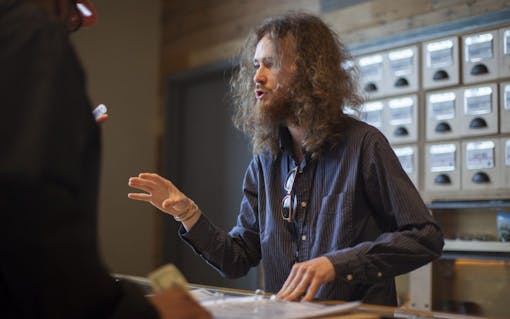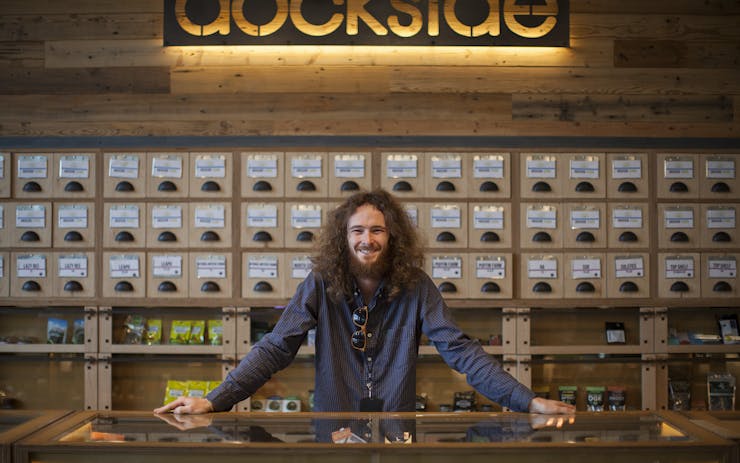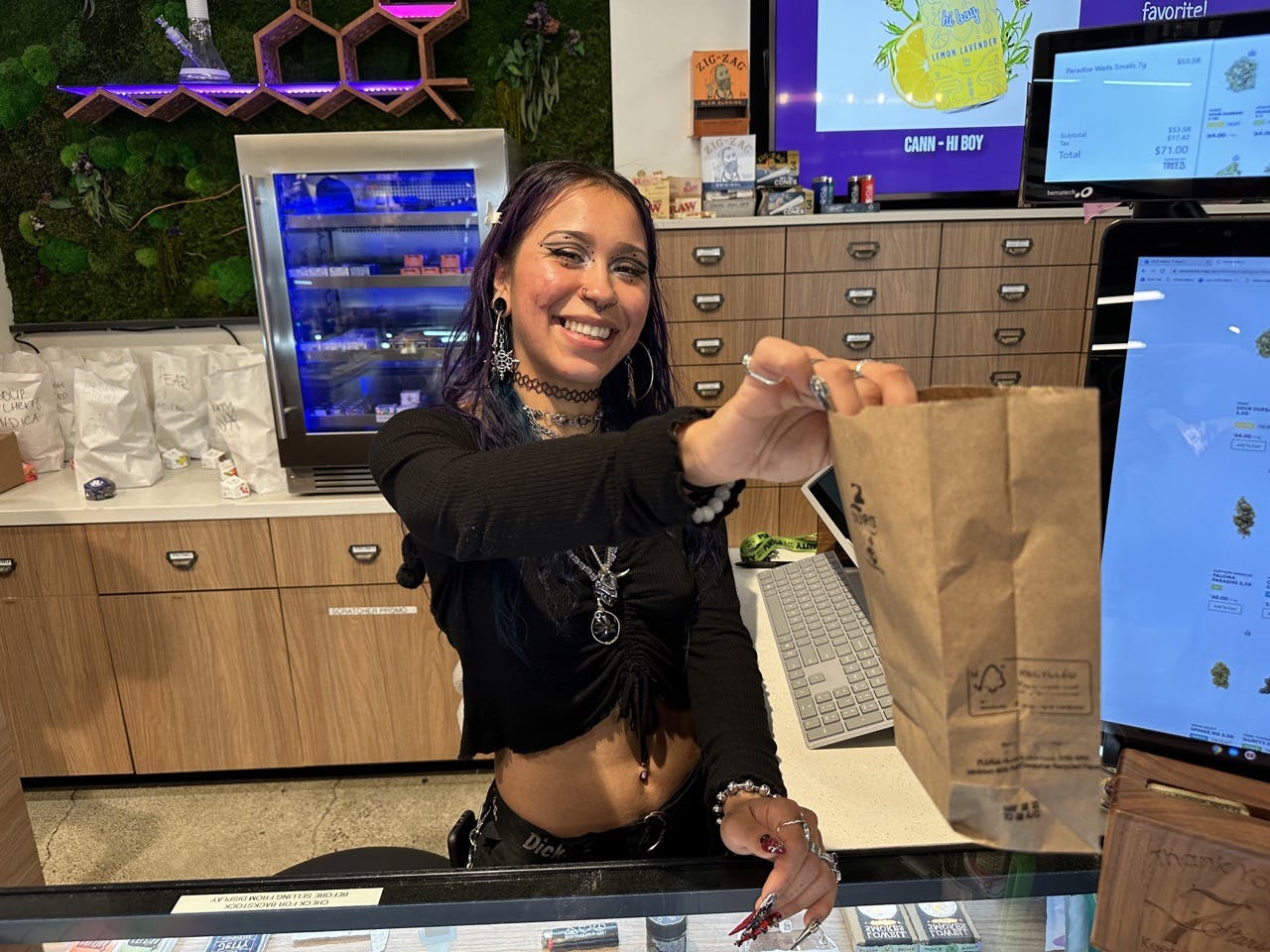Budtenders are an integral part of the maturing cannabis industry. Just as producers cultivate and honor the plant and processors refine and transforms its purpose, budtenders illustrate the symphony of invisible moving parts that conveyed the flower, concentrate, edible, or topical into the hands of customers. This commonly underestimated role is both a ritual in understanding and sincerity, as the budtender must continuously grow their knowledge of new plants and products while also retaining the patience and empathy necessary to guide new and veteran consumers over the ever-changing terrain of the modern dispensary menu.
Leafly’s Budtender Spotlight kicks off in our hometown of Seattle. Austin Tucker, friend, budtender at Dockside SODO, and all-around pleasant human being, was kind enough to share a few product recommendations and his thoughts on what the local cannabis industry is missing.

Austin Tucker, budtender at Dockside SODO in Seattle, sorts through some pre-rolls. (Julia Sumpter/Leafly)
What is your motivation for working in the cannabis industry?
Austin Tucker: Primarily, looking at the strains the way I do, everything is a tool with a different purpose. The brightest of sativas [can be] a stimulator, more of an energizing wake-and-bake as opposed to a creative [hybrid] high. Indicas might decompress you or knock you [out at night] or help you [let go of some tension]. There are so many products to pull from. That is why I got into the medical and, now, recreational [cannabis industry].

Austin Tucker helps out a customer at Dockside SODO. (Julia Sumpter/Leafly)
What is the advice you would share with new consumers in newly legal states?
Tucker: Play attention to clean, happy weed. A happy plant is better than a powerful, stressed plant. And also, when working it in [to your lifestyle], as a beginner you should always start low and go slow. Just let your body tell you what it wants. There is no point in overdoing it; you might actually end up turning yourself off. Stay away from edibles, right off the bat [laughs]. Definitely try something a little easier to work with. Yeah, that is really about it—just basics.
What would you like to see out of the cannabis industry that doesn’t exist yet? Or where would you like it to trend towards?
Tucker: I would like to see public consumption spaces more than anything, because those are going to be the places where knowledge is shared, where people are able to actually hang out with one another to share an interest in cannabis as opposed to alcohol, or [an interest in] both in split environments. But we need those social environments for cannabis, especially for medical patients. If I’m a 75-year old woman with rheumatoid arthritis and she is trying to figure this out and has never once used weed, well, she is going to need help. I cannot administer this help in a shop. I need a place where I can actually help these individuals.








